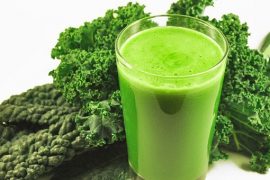If you feel like you have all of a sudden developed an allergy to certain types of foods, or even just feel a little less like yourself after your meals, you may have a food sensitivity. A food sensitivity is a low-grade reaction to certain types of foods that causes an inflammatory reaction within your body.
Over time these foods can damage your gut and dysregulate your immune system, opening the doors to many health problems. Food sensitivities are one of the first factors I address with my patients, so in this article I am going to break down 7 ways to reduce food sensitivities in your own body.

The Damaging Impact of Food Sensitivities
You may be familiar to the idea of a food allergy. This is when someone has an outright and obvious negative reaction to a certain food. We all know someone who has an allergy to peanuts or dairy for example.
A food sensitivity however is an inflammatory reaction that can occur on a systemic level over time without you knowing it. Left unaddressed, it can eventually develop into an outright allergy due to leaky gut and possibly even auto-immunity.
Common Symptoms Of Food Sensitivities
A food sensitivity is a low-grade inflammatory reaction to a food. Typically, the longer you have been consuming a food you are sensitive to, the more you begin to experience symptoms. Common symptoms of food sensitivities include:
Moodiness
Brain Fog
Food Cravings
Headaches
Fatigue
Heart Burn
Joint Pain
Gas/Bloating
Acne or Eczema
Autoimmunity
If you are experiencing any of these symptoms on a regular basis, you will likely want to take steps to remove common reactive foods and strengthen your body’s resilience against sensitivities.
Allergy Vs Sensitivity
There are currently three main explanations for the negative reactions that occur in the body from specific foods. These reactions are classified as IgE, non-IgE, or IgG-mediated. The Ig in these abbreviations stand for Immunoglobulin. Immunoglobulins are important regulatory proteins in the immune system that regulate inflammatory reactions to strategically focus the immune system on specific targets such as viruses and foreign bacteria.
In a classic allergic reaction where consuming a certain food, such as peanuts, can lead to a life-threatening reaction, you are looking at an IgE-mediated process. Non-IgE-mediated reactions are typically isolated to the gut and result in damage to the GI tract, gas/bloating, and potentially diarrhea. Non-IgE mediated reactions are thought to be largely influenced by the makeup of your gut bacteria (1).
Finally, there are IgG-mediated reactions which are thought to be the primary culprit in food sensitivity development. Continued exposure to foods that elicit an IgG-mediated reaction can are now thought to cause systemic problems in the body over time and oftentimes develop into full-blown allergies if not addressed.
The steps in this article are meant to help prevent this progression and strengthen your body’s defenses against these unwanted reactions to foods.

Get Rid of Inflammatory Foods
The first step you want to take is to remove common inflammatory foods from the diet. How reactive you are to certain foods is heavily determined by the health of your gut. By removing common reactive foods for a period of time, you lessen the burden on your gut and allow it time to heal.
Some of the most common food sensitivities include:
- Wheat (and most other grains)
- Soy (and most other beans/legumes)
- Eggs & Dairy
- Fish (especially shellfish)
- Peanuts
- Conventionally Raised Meats
- Corn
You will definitely want to make sure you at least remove the foods listed above from your diet. If you want to take it a step further, I recommend following an elimination diet program.
Follow An Elimination Diet
An elimination diet follows the initial principle outlined above by removing common reactive foods from the diet for a period of time. The next step, however, is to reintroduce these foods one at a time to identify which ones you are specifically reactive to.
If you have a sensitivity to a food, your body will produce a stress response to it when you consume it. This will activate your sympathetic nervous system and drive your heart rate up. By reintroducing foods back into your diet and performing a pulse test, you can identify your unique food sensitivities for free!
Check out my video below on how to perform a pulse test on yourself.
Strengthen Stomach Acid Production
If you want to strengthen your resilience against food sensitivities, you need to support your stomach acid. One of the big reasons you can get a reaction to a food is that you have a damaged, leaky gut. When you have leaky gut, undigested food particles get into your system. Once there, the immune system treats them as foreign invaders.
Those larger molecules become stored in your immune system’s memory and every time you eat that food in the future you have an inflammatory response and this is oftentimes how someone can develop new food allergies (2).
Unfortunately, the relationship between stomach acid and food sensitivities is actually a downward spiral. This is because inflammatory foods inhibit stomach acid production over time and low stomach acid inhibits your ability to fully break down those same foods. The result is continued damage, inhibited digestive processes, and continued release of undigested food particles into the blood stream.
In addition to following the steps already mentioned, you may find it advantageous to use a stomach acid support supplement. This will help you fully digest your food while relieving stress from the digestive tract, assisting it in rebuilding.
Meanwhile, you will want to support your own intrinsic formation of stomach acid by following the steps illustrated below.

Consider Digestive Enzymes
If you haven’t noticed so far, a lot of healing the gut has to do with removing as many stressors as possible. Removing reactive foods and taking steps to support proper digestion are critical here. On top of supporting stomach acid production, supplementing with a high quality digestive enzyme complex can be especially helpful in breaking down a variety of foods.
Consequently, one of the common symptoms of low enzyme production is an increase in food sensitivities. Additionally, your immune, detoxification, as well as many other systems in the body rely on enzymes to carry out normal functions. Getting a broad range of enzymes into your body on a daily basis will help aid in rebalancing these processes.
Improve Immune Tolerance
The damage that occurs in the gut over time due to inflammatory foods eventually leads to leaky gut. As I mentioned earlier, this allows large food molecules into the bloodstream that distract the immune system from real pathogenic threats.
This means a lot of the inflammation caused by food sensitivities is actually due to unwarranted immune reactions. With this in mind, one of the best ways to increase your resilience against food sensitivities is to take steps to strengthen and coordinate your immune system.
The top nutrients I have found for this purpose include: Quercetin, Curcumin, Zinc Glycinate, L-Glutamine, Ginger, and Pea Protein.
Gut Healing Support Supplements
You can purchase these ingredients individually; however, I have formulated a gut healing protein blend containing all of these nutrients that is specifically designed for restoring gut health and improving detoxification systems in the body that also serves as a powerful source of nutrition.
As an additional strategy, colostrum is powerful immune support for the gut. Colostrum is a compound found in high concentrations in mother’s milk of most mammals. It contains important immunoglobulins that act to balance gut flora, reduce GI inflammation, and aid in healing the gut lining.
Take Gentle Anti-Microbials
If you have unbalanced gut flora or have harmful pathogens in your gut, it is going to be difficult to reduce food sensitivities. When pathogens are present in the gut, you will have continued inflammation and distraction of the immune system.
My recommended strategy for this is to utilize gentle anti-microbial compounds on a daily basis to rebalance and maintain the microbiome of your GI tract. This includes things like: garlic, onions, fermented foods, Italian herbs (oregano, thyme, rosemary), lemon & lime juices, and apple cider vinegar. Essential oils such as oregano can also be very powerful for this.
Take Specific Probiotics
There has been some interesting research showing that the microbiome of your gut can either potentiate or protect you from experiencing food sensitivities (3, 4). This makes sense as the microbes in your gut interact with every bite of food that you eat.
Things like antibiotic use, exposure to damaging chemicals, processed foods, spending too much time in a sterilized environment, and even being formula fed as a child can all alter the microbiome in a way that increases your likelihood of suffering from food allergies.
The presence of specific strains of bacteria in the gut such as: Lactobacilli, Saccharomyces boulardii, Bacillus coagulans, and L. acidophilus have all shown to play some role in reducing food sensitivities and restoring a healthy microbial environment in the gut (5, 6). At the same time, probiotics have been shown to help restore the integrity of the gut lining which is also an important step for reducing sensitivity (7).
Bonus Strategies
Reduce FODMAP Sensitivities
FODMAP stands for Fermentable Oligo, Di- and Monosaccharides and Polyols. While this sounds complicated, these are just compounds that occur in specific types of foods. If you are someone with an imbalance in your gut bacteria, especially in the small intestine, you will likely react negatively to FODMAP foods.
If you have small intestinal bacterial overgrowth (SIBO), I would recommend eliminating FODMAP foods for a short amount of time to help restore balance in the small intestine. Take a look at the chart below. If you notice that after consuming any of the following foods that you consistently get diarrhea and flatulence, it may be advantageous for you to remove FODMAPs from your diet.
During this time, it would be a good idea consume anti-microbials, probiotics and nourishing foods like bone broth.
Reduce Histamine Sensitivities
Allergies can often be potentiated or caused by elevated histamine in the body. Histamine is an important inflammatory molecule that plays a role in regulating immunity. In some individuals however, elevated histamine or improper histamine metabolism can lead to exaggerated reactions to different environmental factors, such as food compounds.
These people will usually know whether or not they are histamine intolerant. They are often very reactive to things like fermented foods and some even report being allergic to the sun!
In this case, it is very important to reduce your exposure to histamine-raising foods while also taking steps to improve your metabolism of histamines. Many of the steps outlined in this article will help improve your histamine response. You can read more about histamine intolerance here.
Complete Digestive Health Analysis
While following an food elimination diet along with strategies in this article is a great way to reduce your food sensitivities. The most efficient and targeted strategy is to use functional lab testing to quickly identify your sensitivities and current health of your gut.
Consider using the Food Sensitivity IgG test to look at specific food sensitivities, an Organic Acid test to look for nutrient deficiencies and microbial biomarkers and a stool test to look at the makeup of the microbiome.
Sources For This Article Include:
1. Jyonouchi, H. (2012). Non-IgE mediated food allergy update of recent progress in mucosal immunity. Inflammation & Allergy Drug Targets, 11(5), 382 396. PMID: 22680623
2. Fasano, A. (2012). Leaky gut and autoimmune diseases. Clinical Reviews in Allergy and Immunology, 42(1), 71 78. PMID: 22109896
3. Stefka, A. T., Feehley, T., Tripathi, P., Qiu, J., McCoy, K., Mazmanian, S. K., … Nagler, C. R. (2014). Commensal bacteria protect against food allergen sensitization. Proc Natl Acad Sci U S A, 111(36), 13145 50. PMID: 25157157
4. Cao, S., Feehley, T. J., & Nagler, C. R. (2014). The role of commensal bacteria in the regulation of sensitization to food allergens. FEBS Letters, 588(22), 4258 4266. PMID: 24791655
5. Fosca A, Polsinelli L, Aquilio E (2015) Effects of Probiotic Supplementation in Non-Celiac Gluten Sensitivity Patients. J Hum Nutr Food Sci 3(5): 1073. (Link)
6. Pandey, K. R., Naik, S. R., & Vakil, B. V. (2015). Probiotics, prebiotics and synbiotics- a review. Journal of Food Science and Technology. PMID: 26604335
7. Rao, R. K., & Samak, G. (2013). Protection and Restitution of Gut Barrier by Probiotics: Nutritional and Clinical Implications. Current Nutrition and Food Science, 9(2), 99 107. PMID: 24353483
About the author:
 Dr. David Jockers is a Maximized Living doctor, functional nutritionist, corrective care chiropractor, exercise physiologist, and certified strength and conditioning specialist. His mission is to inspire and empower as many people as possible to reach their full health potential.
Dr. David Jockers is a Maximized Living doctor, functional nutritionist, corrective care chiropractor, exercise physiologist, and certified strength and conditioning specialist. His mission is to inspire and empower as many people as possible to reach their full health potential.
He currently owns and operates Exodus Health Center in Kennesaw, Georgia. He is also the author of the best-selling book “SuperCharge Your Brain†the complete guide to radically improve your mood, memory and mindset.
This article is shared with permission from our friends at Dr. Jockers .













